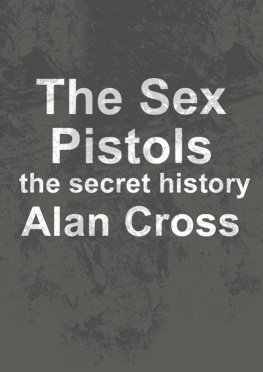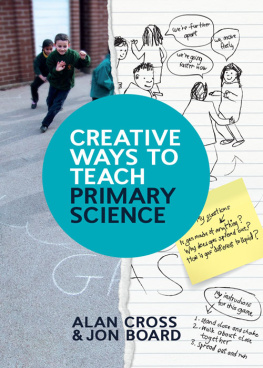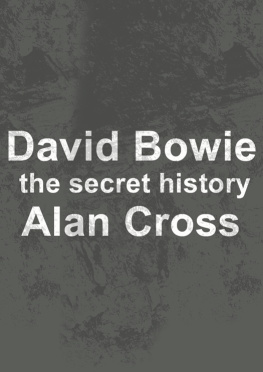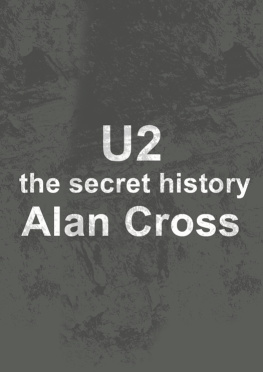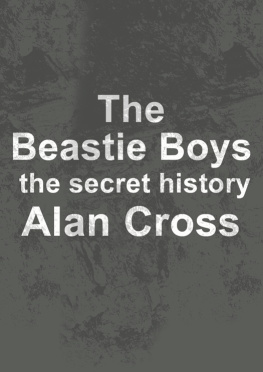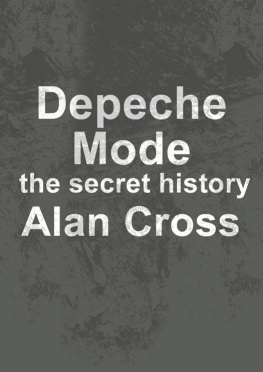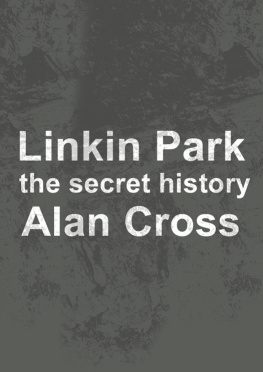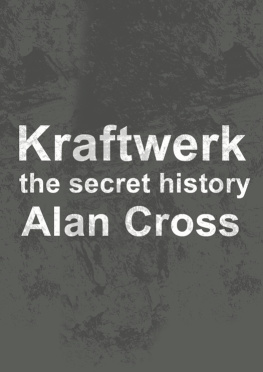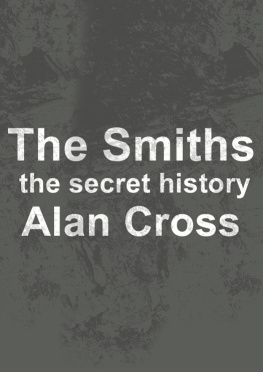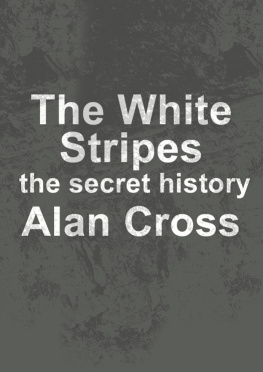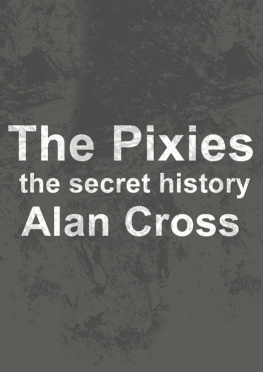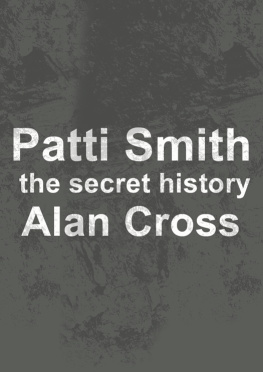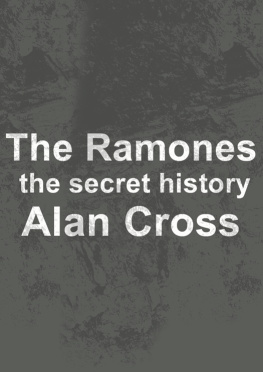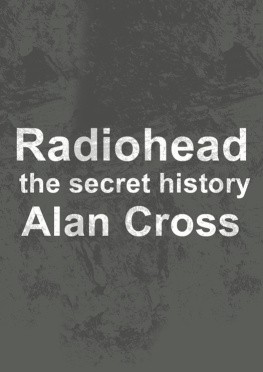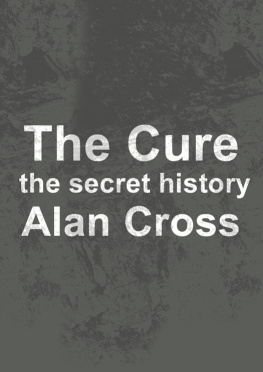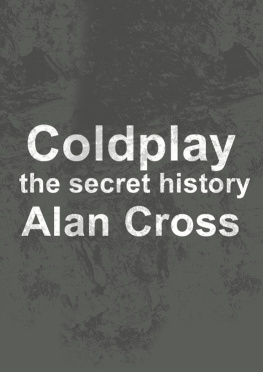Alan Cross - The Sex Pistols: the secret history
Here you can read online Alan Cross - The Sex Pistols: the secret history full text of the book (entire story) in english for free. Download pdf and epub, get meaning, cover and reviews about this ebook. year: 2012, publisher: HarperCollins Canada, genre: Non-fiction. Description of the work, (preface) as well as reviews are available. Best literature library LitArk.com created for fans of good reading and offers a wide selection of genres:
Romance novel
Science fiction
Adventure
Detective
Science
History
Home and family
Prose
Art
Politics
Computer
Non-fiction
Religion
Business
Children
Humor
Choose a favorite category and find really read worthwhile books. Enjoy immersion in the world of imagination, feel the emotions of the characters or learn something new for yourself, make an fascinating discovery.
- Book:The Sex Pistols: the secret history
- Author:
- Publisher:HarperCollins Canada
- Genre:
- Year:2012
- Rating:4 / 5
- Favourites:Add to favourites
- Your mark:
- 80
- 1
- 2
- 3
- 4
- 5
The Sex Pistols: the secret history: summary, description and annotation
We offer to read an annotation, description, summary or preface (depends on what the author of the book "The Sex Pistols: the secret history" wrote himself). If you haven't found the necessary information about the book — write in the comments, we will try to find it.
Alan Cross is the preeminent chronicler of popular music.
Here he provides a history of punk-rock revolutionaries The Sex Pistols.
This look at the band -- Delivering Anarchy to the UK -- is adapted from the audiobook of the same name.
The Sex Pistols: the secret history — read online for free the complete book (whole text) full work
Below is the text of the book, divided by pages. System saving the place of the last page read, allows you to conveniently read the book "The Sex Pistols: the secret history" online for free, without having to search again every time where you left off. Put a bookmark, and you can go to the page where you finished reading at any time.
Font size:
Interval:
Bookmark:
Things fall apart; the centre cannot hold;
Mere anarchy is loosed upon the world,
William Butler Yeats, The Second Coming
Had Yeats lived in mid-70s England instead of Ireland at the turn of the century, he might still have written those same words. Britain was facing a brutal recession, the continuing aftereffects of the oil crisis, high unemployment, rising crime, escalating problems with the IRA and a growing sense of social unrest. If you were young and English and unemployed, things may have seemed to be spinning hopelessly out of control.
And what rough beast, its hour come round at last,
Slouches towards Bethlehem to be born?
Yeatss rough beast was indeed waiting to be bornbut instead of a manger in the Middle East, it entered the world in a clothing shop in London. Under the Svengali-esque guidance of the owner of this shop, four petty criminals somehow held together long enough to ignite a punk explosion that spread fallout long after the group had disappeared.
The Sex Pistols didnt invent punk rock and certainly werent the first punk band. They werent even the first punk band to release a record. At their peak, they could muddle through perhaps 25 songs, of which a mere 15 were original compositions. When they broke up in January 1978, just 26 months after they were formed, they left behind exactly one studio album. What the Sex Pistols did manage, however, was to attract our attention. More than any other British band, the Pistols were responsible for kicking off the punk-rock revolution. Without them and the media chaos they created, everything thats ever been included under the umbrella of alternative music would be much, much different. They were, quite simply, one of the most influential bands in history.
The Pistols legend starts with Let It Rock, Malcolm McLarens clothing shop on Kings Road in Chelsea. In 1971, McLaren (an art student) and his designer friend Vivienne Westwood took over the store and began selling 50s-style clothing to the neighborhoods teddy boys. It eventually became something of a hangout for a certain class of musicians and a regular stop for touring American bands like the New York Dolls. Enamored of the Dolls drunken, glamorous lifestyle, McLaren signed on as their manager and moved to New York for several months, hanging out with the underground-art-and-music elite. One of the people he met was Richard Hell, a musician so poor that he had to hold his ripped and ragged clothes together with safety pins. Interpreting this as a brilliant fashion statement (it wasnt; Hell really was that poor), McLaren remembered this idea after the Dolls finally imploded, dashing his impresario dreams.
Bitten by the music bug and besotted with the sort of hangers-on that his store attracted, McLarens next idea was to form a group that would be a living, breathing advertisement for his shop and its goods. Unlike the disastrous, uncontrollable Dolls, this new band would be shaped in McLarens own image from the ground up. Four regular loiterers were recruited: Glen Matlock (born August 27, 1956), Steve Kutie Jones (May 3, 1955), Paul Cook (July 20, 1956) and John Lydon (January 31, 1956), nicknamed Johnny Rotten for his horrible green teeth. McLaren named his group the Sex Pistols (Sex after the store and Pistols because that sounded dangerous).
By the summer of 1975, they had reteamed with bassist Glen Matlock and were just a singer away from forming another band. Sometime in August, McLarens shop assistant, Bernie Rhodes (the future manager of the Clash), pointed out Rotten, who had been hanging around wearing a homemade I Hate Pink Floyd T-shirt. After quick meeting at the Roebuck Pub to discuss his wonderfully bad attitude, Rotten was invited over to Sex to audition as a singer. He got the job by singing along with Alice Cooper as Schools Out blared over the stores jukebox.
The Sex Pistols rehearsed sporadically throughout the fall, learning several songs by the Who and Small Faces as well as attempting to write a few of their own. On November 6, 1975, they played their first gig at St. Martins Art College in front of perhaps 12 people. A screaming, squalling performance was cut after just 10 minutes when the social programmer of the school found the Pistols to be so appalling that he ordered power to the stage shut off.
Gigs became more violent and unpredictable as more young, angry and disillusioned fans showed up to hear the Pistols spit and snarl their way through a set of loud, sloppy garage rock. To them, the Pistols were a refreshing blast of nihilism, an antidote to the lame rock and roll of the day. British rock of the 1970s was a stagnant wasteland dominated by over-25 millionaires like the Stones, Led Zeppelin and Wings. Meanwhile, radio was awash with sappy singer-songwriters: James Taylor, Harry Chapin, Joni Mitchell. Lost in this mix were all the kids who couldnt identify with either scene. The Ramones (who played a triumphant show at the Roundhouse on July 4, 1976), the Sex Pistols and a few other acts offered hope that music would soon be back in the hands of the kids, even if that meant smashing the entire status quo to bits.
Suddenly, rock and roll was once again rebel musicexcept that this time, rock was rebelling against itself. Punk rock offered a special freedom of spirit that had gone missing from music. Unpretentious and unselfconscious, punk was becoming a forum for all sorts of new ideasand the best part was that anyone could participate. Knowing how to play an instrument wasnt important; all that mattered was that you had the guts to go for it.
This in itself was an important lesson. By the 1970s, rock and roll had become much more sophisticated in both sound and execution. In many cases, the evolution was a function of age. The first wave of rockers from the 50s and 60s had grown up and become better musicians; they had grown bored with simple three-chord songs. Rock had also become more complicated because it could. Guitar, amplifier and synthesizer technology had progressed to the point where the number of new sounds seemed infinite. Recording studios were refurbished with 16- and 24-track consoles and tape machines. Racks of new boxes added all kinds of hitherto unimaginable effects to the recording process. Since the Beatles and Sgt. Pepper, most of the music media had become fascinated with technical ability and elaborate studio production.
At the other end of the pipeline, home stereo equipment had begun to improve dramatically. The old wood entertainment centers with their one-pound tonearms were giving way to proper component systems featuring better speakers and especially headphones. This made it possible for the listener to pick up on subtleties that were carefully planted deep within rock recordings. Progressive FM rock stations were on also the rise. Imaginemusic on the radio that was in stereo!
But for some, things were getting a little too sophisticated. The musicianship was a little too polished, the recording techniques a little too slick. There were those who believed that technical perfection in rock was anathema to its original purpose. Deep beneath the happy blather of top 40 radio and beyond the slick, corporate sound of mainstream rock, pressure was building. To a growing number of people rock had become soulless, self-indulgent and dull. There were too many millionaire rock stars. That vital connection between the fan, the performer and the music had been hijacked and corrupted. A coup dtat was in ordera revolution that could wrest the music back from the multinationals and return it to the people. Young fans increasingly began to look to the underground for helpand the Sex Pistols were there for them. Technique and musicianship took a back seat to old-fashioned rock and roll rage.
Font size:
Interval:
Bookmark:
Similar books «The Sex Pistols: the secret history»
Look at similar books to The Sex Pistols: the secret history. We have selected literature similar in name and meaning in the hope of providing readers with more options to find new, interesting, not yet read works.
Discussion, reviews of the book The Sex Pistols: the secret history and just readers' own opinions. Leave your comments, write what you think about the work, its meaning or the main characters. Specify what exactly you liked and what you didn't like, and why you think so.

